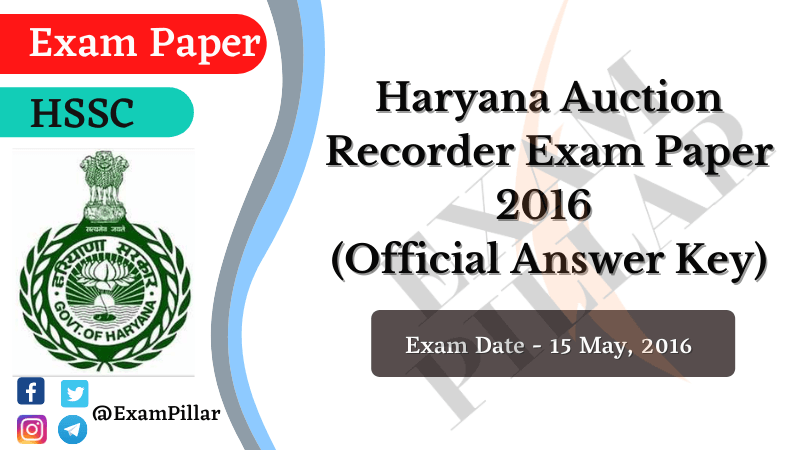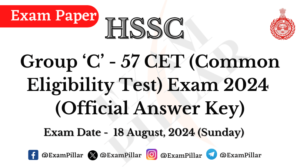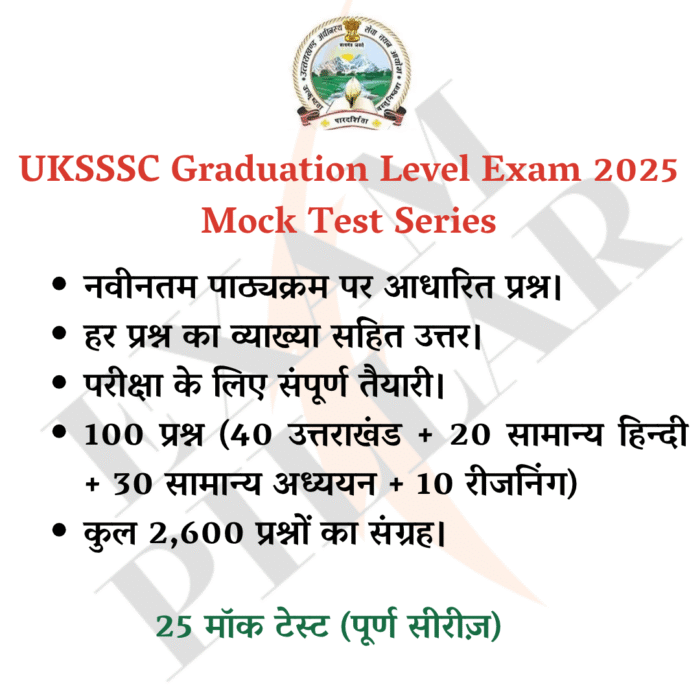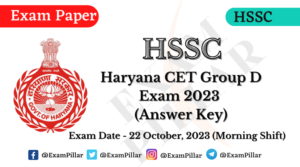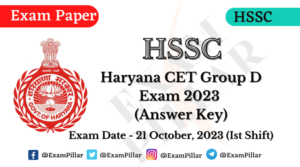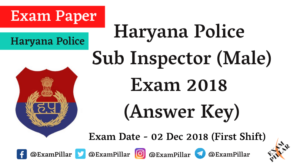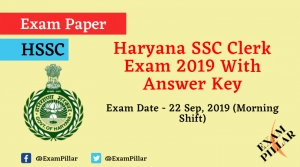ENGLISH LANGUAGE
41. Fill in the blank.
Our ______ lived in caves and used crude implements.
(1) ancients
(2) antecedente
(3) antipodes
(4) ancestors
Show Answer/Hide
42. Choose the word that best expresses the meaning of the underlined word. I can only speculate that he left willingly.
(1) judge
(2) argue
(3) guess
(4) think
Show Answer/Hide
43. Select the substitution that best expresses opposite meaning of the underlined word : His face bore emotionless look all the time while I was telling him about that exciting incident.
(1) a passive
(2) an expressive
(3) a passionate
(4) a mysterious
Show Answer/Hide
44. Choose the alternative which best expresses the meaning of the given idiom /phrase :
To eat one’s heart out
(1) to cry
(2) to laugh
(3) to suffer silently
(4) pretend to suffer
Show Answer/Hide
45. Find the wrongly spelt word:
(1) literature
(2) literal
(3) litracy
(4) literary
Show Answer/Hide
46. In the following question, a sentence has been split into six parts. The first and the last parts have been numbered 1 and 6. Remaining four parts have been named P, Q, R and S. While parts 1 and 6 are in proper sequence, parts P, Q, R and S have been jumbled up. Rearrange the jumbled parts to make a meaningful sentence.
(1) Pakistan cannot claim to
(P) not done too badly
(Q) battlefield but it has
(R) over India in the
(S) have any decisive victory
(6) in the publicity war.
(1) SQPR
(2) SRQP
(3) PRSQ
(4) QPSR
Show Answer/Hide
47. Choose the most suitable ‘one word’ for the following phrase/ expression :
A person who travels to a sacred place as an act of religious devotion.
(1) Hermit
(2) Pilgrim
(3) Saint
(4) Mendicant
Show Answer/Hide
48. In the following Question, find out which part of the sentence has an error. If there is no mistake, the answer is ‘No error’.
The road to famous monument passes through a forest.
(1) The road
(2) to famous monument
(3) passes through a forest.
(4) No error
Show Answer/Hide
49. Fill in the blanks Suddenly she turned away ______ the window and stood ______ the glass.
(1) from ; to
(2) from ; before
(3) off ; near
(4) with ; to
Show Answer/Hide
50. Find the correctly spelt word.
(1) Comemorate
(2) Commemmorate
(3) Comemmorate
(4) Commemorate
Show Answer/Hide
हिन्दी-भाषा (51 – 60)
51. ‘छप्पय’ शब्द में समास है :
(1) द्विगु
(2) द्वन्द्व
(3) तत्पुरुष
(4) अव्ययीभाव
Show Answer/Hide
52. ‘निम्न पंक्तियों में कौन सा रस है?
वर दन्त की पंगति कुन्दकली अधराधर पल्लव खोलन की।
चपला चमके घन बीच जगै छवि मोतिन माल अमोलन की।।
घुघरारि लटें लटक मुख ऊपर कुण्डल लोल कपालन की।
निछावर प्राण करे तुलसी बलि जाऊँ लाल इन बोलन की।।
(1) वात्सल्य रस
(2) शान्त रस
(3) वीर रस
(4) हास्य रस
Show Answer/Hide
53. निम्नलिखित में से उपसर्ग रहित शब्द कौन-सा है?
(1) कुजात
(2) उपगमन
(3) डरावना
(4) दुर्जन
Show Answer/Hide
54. ‘व्युत्पत्ति’ में संधि है :
(1) वृद्धि संधि
(2) यण संधि
(3) दीर्घ संधि
(4) गुण संधि
Show Answer/Hide
55. ‘छाती से लगाकर रखना’ मुहावरे का अर्थ है :
(1) किसी प्रिय व्यक्ति को आलिंगनबद्ध करना।
(2) किसी वस्तु या व्यक्ति को अत्यंत सुरक्षित रखना।
(3) किसी वस्तु से अत्यधिक लगाव रखना।
(4) माता का अपने शिशु को स्तनपान कराना।
Show Answer/Hide
56. ‘आहूत’ का विलोम है
(1) निमंत्रित
(2) आमंत्रित
(3) अनाहूत
(4) बुलावा
Show Answer/Hide
57. ‘दुहिता’ का पर्यायवाची है
(1) आपगा
(2) गृहिणी
(3) पतिव्रता
(4) पुत्री
Show Answer/Hide
58. शुद्ध वर्तनी वाला शब्द है
(1) वाणिजयक
(2) वाणीज्यक
(3) वाणिज्यिक
(4) वाणिजयक
Show Answer/Hide
59. रहिमन पानी राखिये, बिन पानी सब सून।
पानी गये न ऊबरै मोती, मानस, चून।।
उक्त पंक्ति में कौन सा अलंकार है?
(1) उपमा
(2) रूपक
(3) अनुप्रास
(4) श्लेष
Show Answer/Hide
60. निम्नलिखित वाक्य-खण्ड के लिए दिए गए विकल्पों में से एक शब्द चुनिए:
‘किसी वस्तु की छोटी से छोटी खराबी ढूँढ़ने वाला।’
(1) जिज्ञासु
(2) छिद्रान्वेषी
(3) दूरदर्शी
(4) दार्शनिक
Show Answer/Hide

